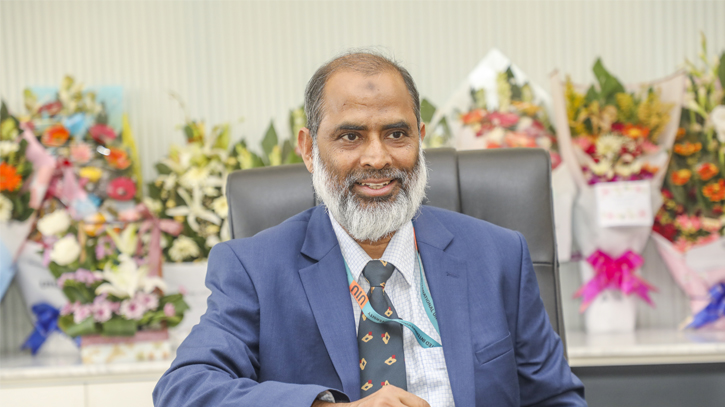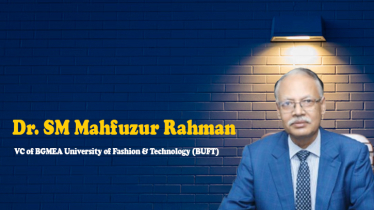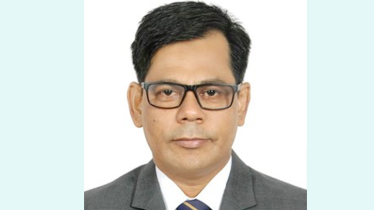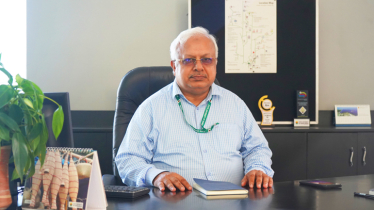
Prof. Dr. Md. Abul Kashem Mia
My attachment with the United International University (UIU) goes back over a decade, both as a part time faculty and as a journalist. I have watched the growth of this educational institute from proximity in the last 15 years, covering many important programmes and events. My close interaction with the faculty members helped me to learn a great deal about this unique institute and how it strives to attain an exalted rank among the fraternity. I can say with confidence the journey of UIU was slow but steady with a clear goal in front.
From its humble beginning at Dhanmandi to its migration to the present multi-storied edifice on its own land, speaks of continued upward growth circumventing different types of obstacles that came in the way. In the last 20 years they have covered a lot of ground. So, where do they want to see UIU in the next 10 years, was a question I placed before the Vice Chancellor. “We want to be among the 20 of the best research-based universities in South Asia in the next 10 years.” Vice Chancellor Prof. Dr. Md. Abul Kashem Mia sounded genuinely confident when he said this during a conversation with him one sunny morning at his office. In support of his announcement he talked about various academic and extra academic programmes that UIU undertakes for the holistic development of the students. The authorities call it a research based university and in this connection they allocate huge funds for doing research work and publish scientific papers in reputable journals.
I solicited his comments on the question what role did private universities play in the development of higher education in Bangladesh. He said that before the advent of private universities in the country, a huge number of students remained outside the purview of a university because of seat limitation in public universities. For such a large body of young students, eager to join undergrad courses, there was no private university worth the name. Hence, there was no option left for them but to go abroad and join various colleges and universities. This meant both brain drain as well as loss of valuable foreign currency.
The history shows that it was at such a critical time, in the early 90s, that some pioneering stalwarts came up with the idea of starting private university with government approval. The names of such academicians as Prof. Muslehuddin Ahmad, Prof. Hafiz G.A. Siddiqui and Prof. M Alimullah Miyan will always stand out among others. After days and months of meetings with the government officials they finally could convince them that private university was the need of the hour if they wanted our students to stay in the country and get equally good education here.
Eventually some good private universities came up one after another and with a set of highly qualified teachers they could create a niche for them in the world of education. Most private universities offered courses that are commensurate with market need. Students and parents are happy as courses finish within the stipulated time with no hassle of disruptive politics on campus. “Now students prefer private universities as the first choice”. Said Dr. Mia.
As far as quality is concerned, I have seen that about a decade back in newspaper ads for bank jobs, some foreign banks and multinationals used to mention “IBA graduates only.” But after a couple of years now they mention IBA, NSU, BRAC, UIU, IUB, AIUB, EAST West and so on. This only explains why big employers such as banks and multinational companies now recognize the worth of the BBA and MBA degree holders of the good private universities.
The Vice Chancellor of UIU emphasized the marketability of private university graduates, both at home and abroad, and highlighted the fact that many of the UIU graduates are getting admitted in renowned universities in the west to pursue post graduate education. They are also getting jobs in big companies at high salaries. These are the points he cited to answer my question: What are the contributions of private universities in higher education in Bangladesh.
In a candid discussion on the issue of private universities conferring Ph.D degrees on students, Prof Mia believed all private universities may not have the ability to do so. He said there are certain criteria that the university will have to fulfill if it wants to confer a Ph.D degree. The necessary infrastructural facilities must be present such as a good library, qualified and permanent supervisors, good laboratories and so on. But foremost, there has to be a clear policy guideline for universities, both public and private, that has to be followed in case of admitting students in Ph.D courses. Once the infrastructure facilities and the learning environment are there, a university can undertake Ph.D courses.
Dr. Kashem Mia believes that in the near future some front ranking private universities might surpass public universities in producing high quality graduates.
Messenger/Fameema








